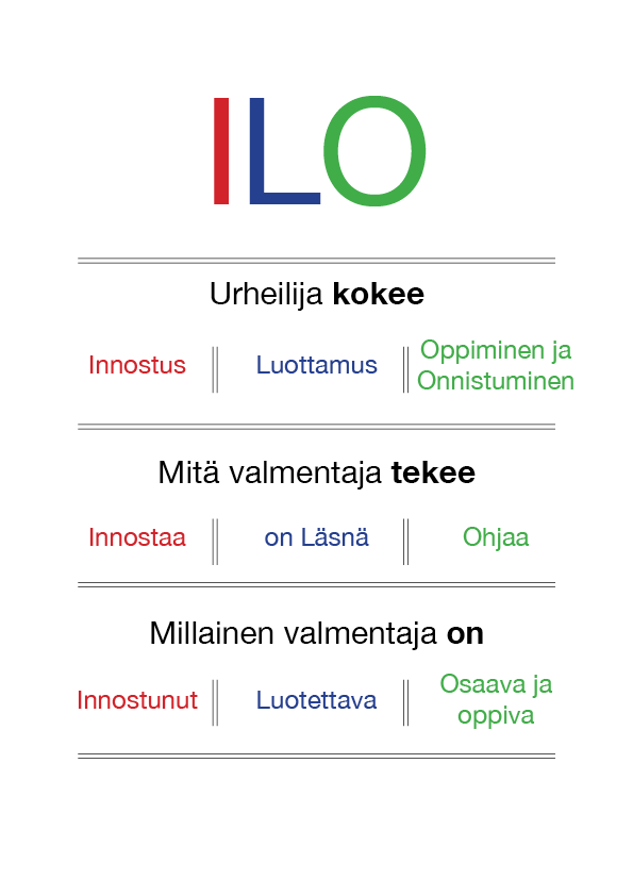Taekwondo carries with it many traditions and customs. It would be easy to write down platitudes about various connections between sports and spiritual growth and the role of the teacher in the growth of the student.
Modern competitive sports require appropriate thinking.
The athlete's experience is central
The athlete must feel that the sport is meaningful. It is only possible if the athlete is enthusiastic about the things he does. Sometimes sport is hard and in that case the enthusiasm for doing it yourself carries better than, for example, gathering strength from the results.
Enthusiasm is protected by confidence. Trust has two dimensions. The first is trust in the community and especially in its central players. The second is partly born from the first and partly overlaps with learning and success, namely the athlete's confidence that he is doing the right things.
Succeeding and learning as an everyday experience is a more important factor in terms of career success than achieving individual big goals, although they also have their own value.
The coach feeds the athlete's experiences
The coach must strive in his work to help the athlete to be at his best. However, it is reasonable to limit what to do and focus on the experiences that have been found to be central.
The coach inspires the athlete. The key is to understand the drivers of enthusiasm in different age periods. A child and a peak adult can have very different reasons for playing sports. However, there is no reason to value different reasons too much over others, but to feed them and give opportunities to find new ones.
The coach is present in the everyday life and celebration of the athlete's sport and, of course, as a support when the athlete faces difficulties and disappointments. With his presence, the coach creates a safe environment. An athlete can succeed and fail safely when he knows that support is available in all situations and conditions. The coach also takes care of the conditions in which they work together with the athlete.
The coach guides the athlete to do the right things. This leads to experiences of learning and success. Often, traditional coaching education focuses only on developing the physique and teaching the skill, but since the athlete is not a machine, simply tuning the performance is not enough. The coach must help the athlete utilize his mental resources and provide a comprehensive toolkit for working in the field of sports.
A coach needs to develop and develop
A coach must be enthusiastic about his work. He also shares his enthusiasm around him, not only to the athlete, but also to the entire surrounding community. Enthusiasm is a key condition for a coach to continuously develop and, on the other hand, cope with daily work.
The coach must be reliable so that the athlete can commit to doing things together. It is also easy for the surrounding community to commit to supporting the athlete, when the coach is able to give guarantees of continuity and the credibility of the task system.
A coach must know how, but it is even more important to learn constantly. All coaches are bad at first, but only those who have a strong aspiration to learn and develop as a coach can become top coaches.

